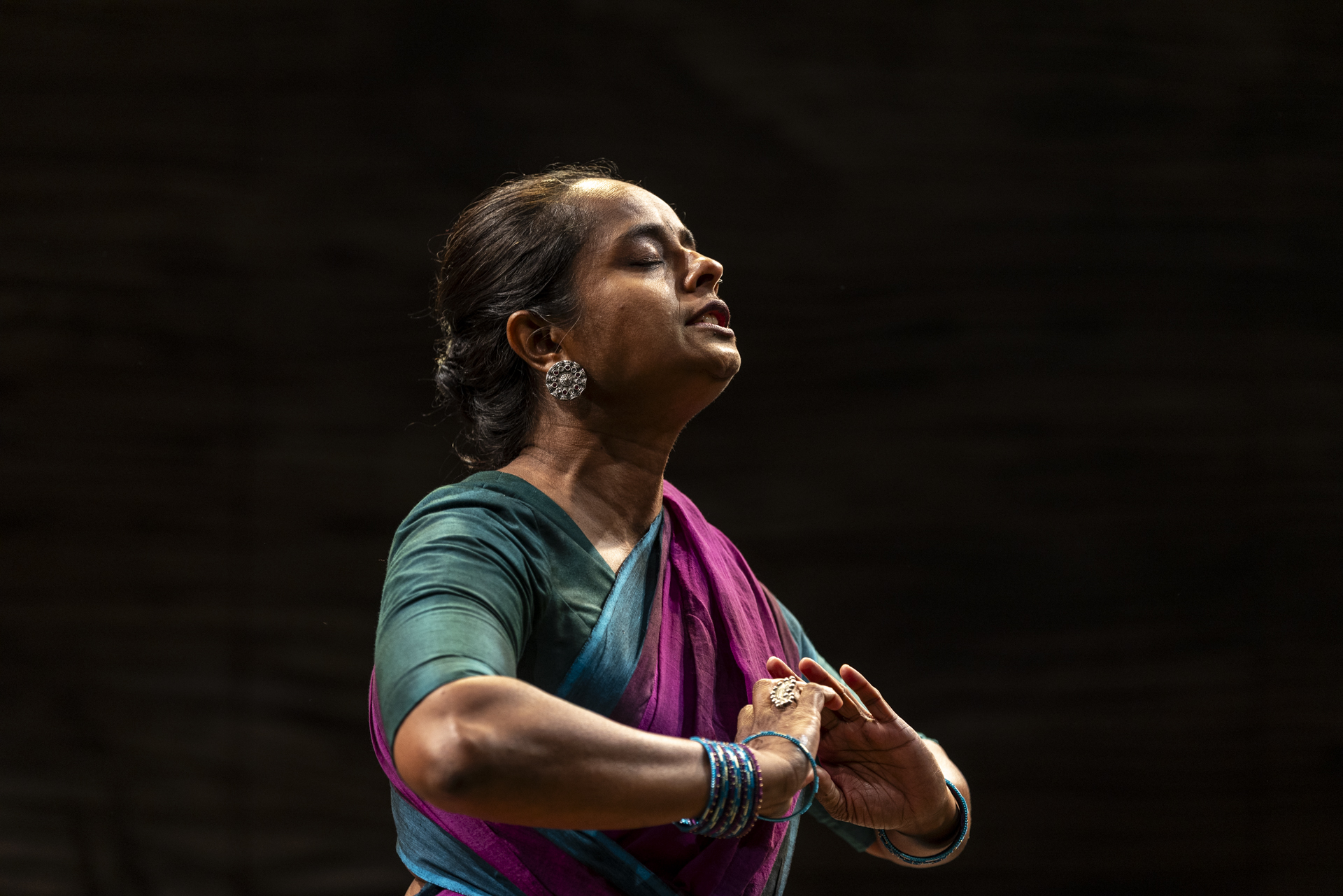Religion, family, nature and culture collide in this play inspired by reality.
The Wrong Gods, the third play written by S. Shakthidharan (also co-director) presented by Belvoir St Theatre, is a powerful story of displacement, familial and spiritual conflict, and the clash between old and new worlds. Following the spellbinding Counting and Cracking and The Jungle and the Sea, Shakthidharan again plays to his strengths by crafting a script that is nuanced, thought-provoking, and proudly South Asian. A strong performance from the brilliant Nadie Kammallaweera channels the play’s themes well. The intricate plot and richly layered dialogue however may require close attention from the audience.
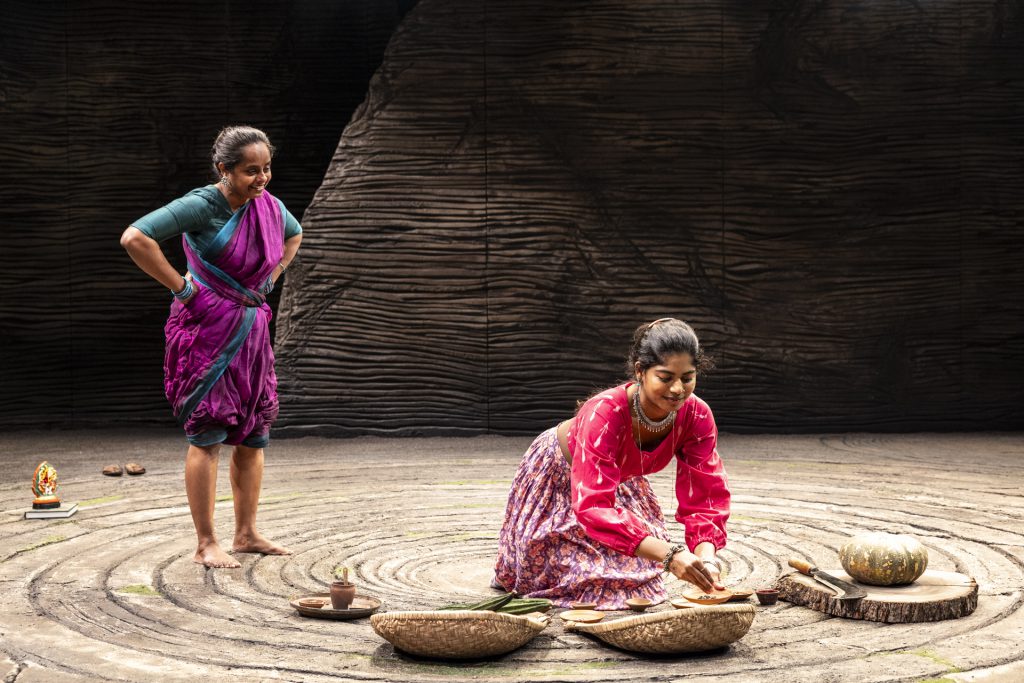
The Wrong Gods mirrors elements of the real-life controversy of the Narmada River, which flows through central India, and the Indian government’s decision to build more than 3000 dams along it, most notably the Sardar Sarovar Dam – an action which displaced hundreds of villages, thousands of families, and was subject to a series of court actions, protests, and a hunger strike. These elements are noticeable in the plot, where a dispute over a dam being built near an Indian village by a mysterious American company causes a rift between village elder Nirmala (Kammallaweera), her ambitious daughter Isha (Radhika Mudaliyar), Isha’s forward-thinking teacher Devi (Manali Datar), and company executive Lakshmi (Vaishnavi Suryaprakash).
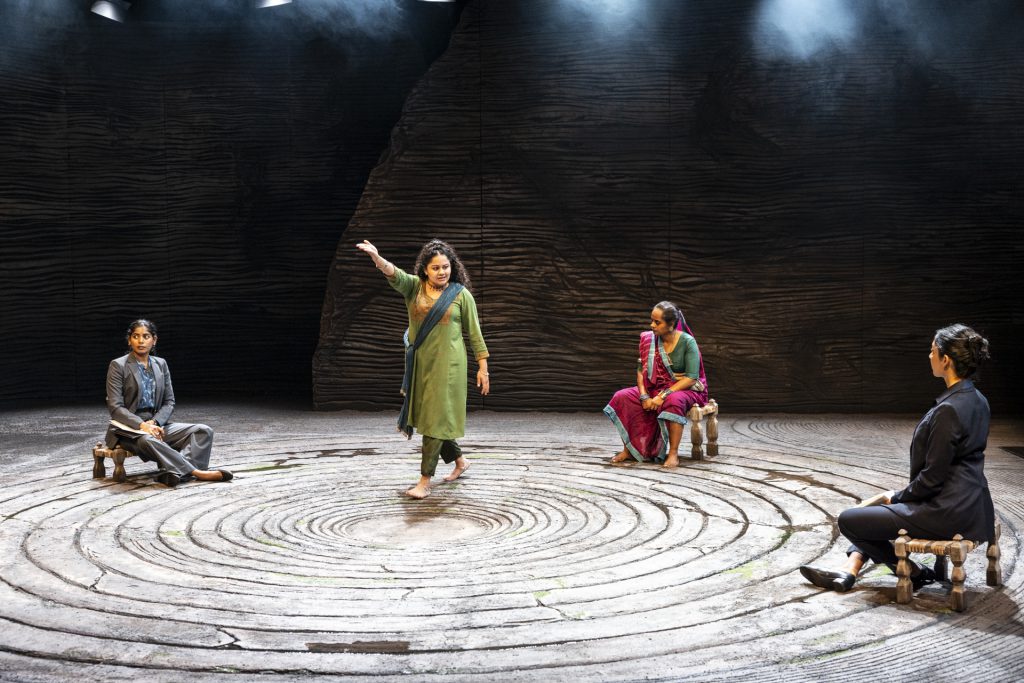
Kammallaweera leads the cast brilliantly. Her Nirmala is stubborn, spiritual, and deeply understanding of the world around her, and she embodies all of these in a raw and powerful performance. She palpably and profoundly displays the pain Nirmala experiences as Isha neglects her old-world teachings, her village faces flooding from the new dam, and her faith in Hindu gods is tested by new technologies and ways of thinking. At the same time Kammallaweera capitalises on Nirmala’s humour, which arises from her age and stubbornness. This offers a much-needed balance to the play’s intensity – which peaks in a well-choreographed fight sequence (courtesy Movement & Fight Director Nigel Poulton) – and adds nicely to the range of her performance.
The rest of the cast have their standout moments and a good chemistry with each another. Mudaliyar offers a lot in the show’s early stages, playing up Isha’s cheeky, aspirational qualities. Though her character feels sidelined as the play progresses, she picks up in importance and impact towards its climax. At that point, Mudaliyar’s maturity lets her portray Isha as distinct from her mother but understanding of her decisions, resolving one of the play’s conflicts. Suryaprakash plays Lakshmi in a compelling way, not so much a villain but someone struggling to reconcile their work with their ethics. Her ability to capture Lakshmi’s internal conflict with such intricacy reflects her much lauded skill. Datar delivers her supporting roles with skill (rising to the fore as the play reaches its telling moments), though the material gives her only glimpses to reveal the full extent of her talent.
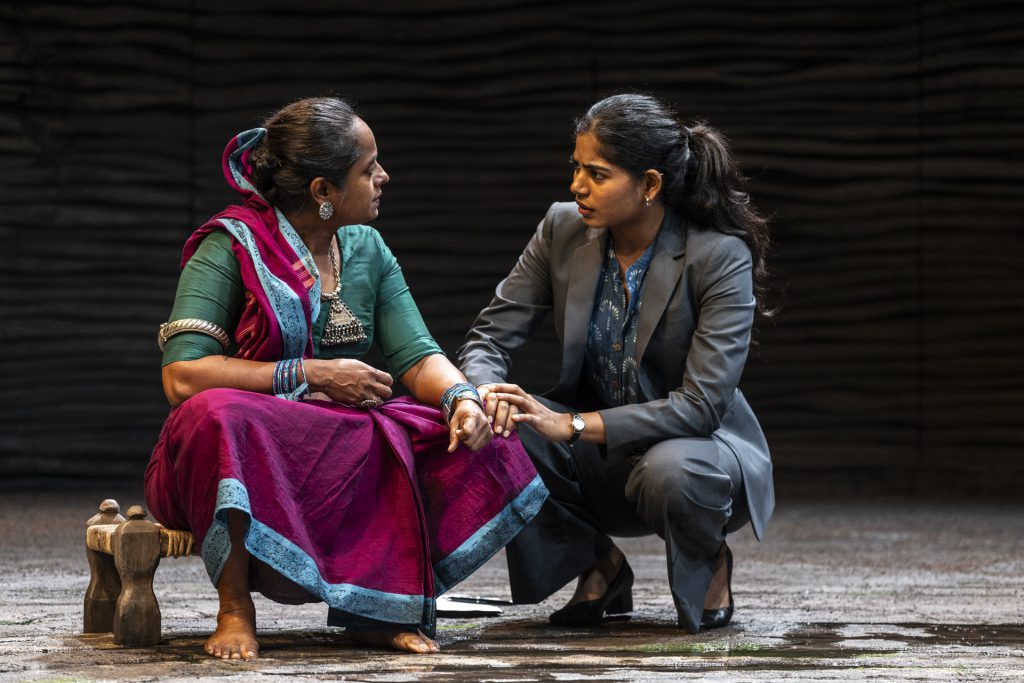
Production elements support the show well, with a gorgeous minimal set courtesy Keerthi Subramanyam and Indian music well composed by Sabyasachi Bhattacharya. Yet, despite co-direction by Hannah Goodwin and Shakthidharan trying to bring everything together, The Wrong Gods gets lost in its complexity. This is because there are so many conflicts on display – between Nirmala and Isha, Nirmala and Lakshmi, Devi and Nirmala, Lakshmi and Isha, Isha and spirituality, and Lakshmi and the village, to name a few. It is not easy to track each conflict clearly, especially as the cast move quickly between them: because the characters have so much to get through, the direction has to follow suit. Though the pacing fortunately eases towards the show’s climax, allowing the audience to catch up, for a good portion of the performance it is exhausting (and occasionally challenging) to know exactly what is happening.
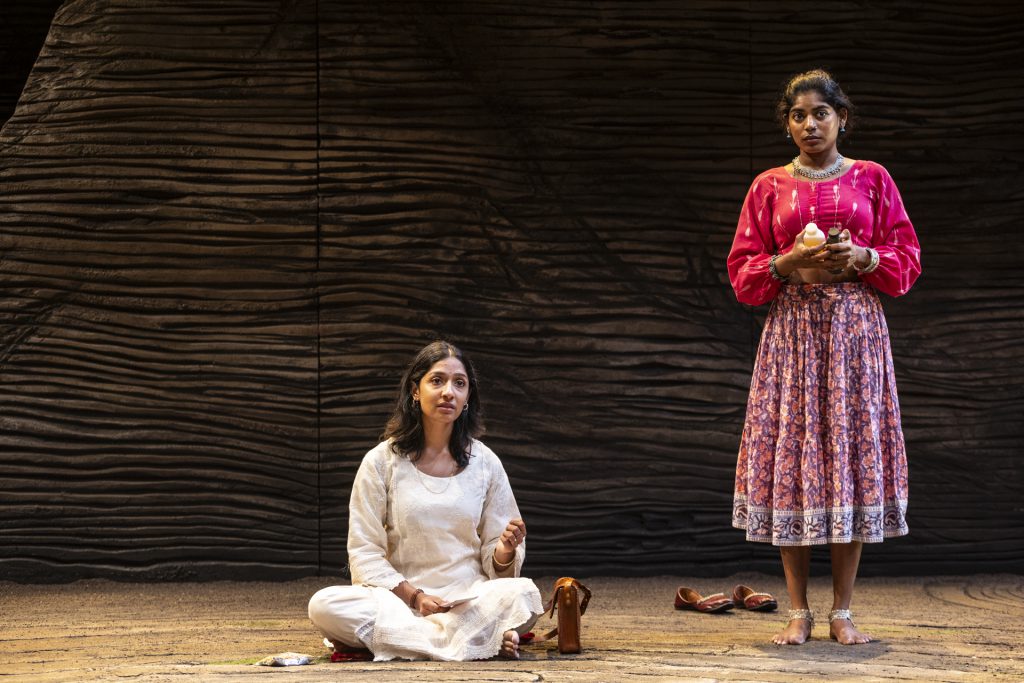
Ultimately, The Wrong Gods offers a lot to dissect. Its cast and South Asian influence are worth celebrating. Its themes, though inherently tied to the latter, are not exclusively so; Indigenous Australians continue to experience displacement from foreign forces. It raises many questions, but leaves its most important unanswered: in a world where new gods bring destruction, and old gods no longer respond to our prayers, where do we look for guidance?
